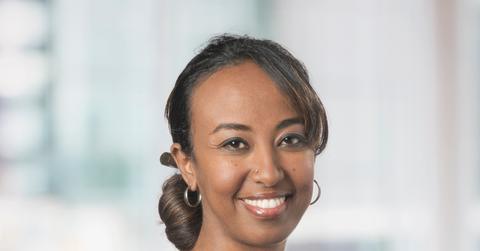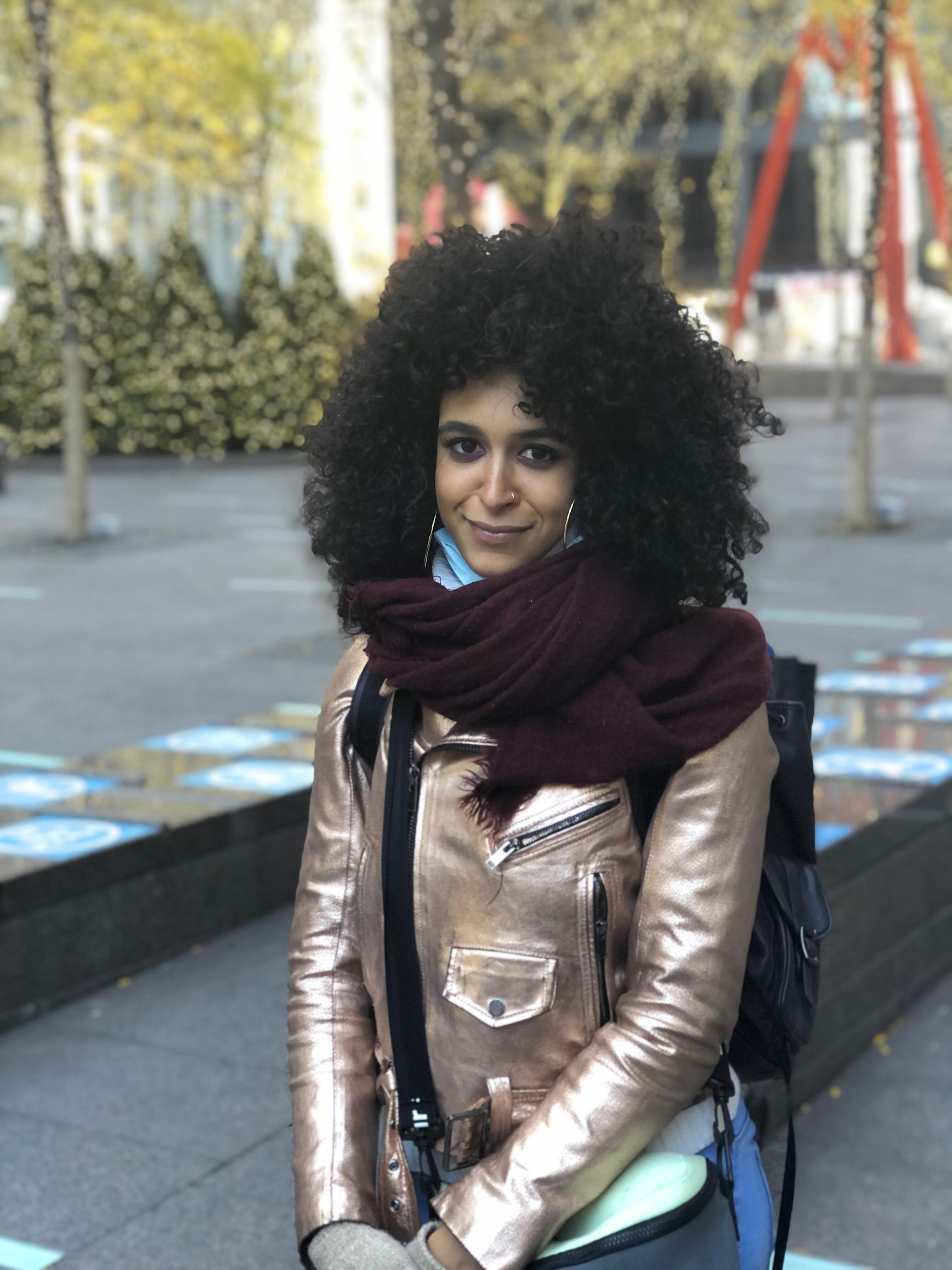As the world around us continues to change at a rate faster than we’ve had time to prepare for, anticipating what the future will look like seems unfathomable. Luckily, some people are not only reimagining it but are actively laying the groundwork for a better future to be built upon.
Born in Ethiopia, raised by Eritrean parents, and committed to impacting the world, our conversation with Kedest Tesfagiorgis was like a breath of fresh air after years of lockdowns, mandates, and masks. As the Deputy Director, Global Partnerships & Grand Challenges at the Bill & Melinda Gates Foundation, she creates and fosters long-term global partnerships with local scientists and researchers in the pursuit of health equity and development. The latest 2021 Grand Challenge committed to distributing $10 million to 14 African scientists throughout a 10-year program.
Her Agenda was able to speak to the woman who’s managing this and is excited about the future she’s helping create for all of us (and it’s a good plan too).

Her Agenda:How do you think the various roles you’ve had, like being a 10 pm nightly news anchor or an executive secretary to a French ambassador, shaped you for the role you’re in today? And did you ever think you would be in a role you’re in now where you’re technically saving the world?
Kedest Tesfagiorgis: Honestly, I had no idea what I wanted to do but I did try to prepare for this. In my first year in college, there was a great professor who read the Gettysburg address in class. It completely changed my world and opened the world to me to be a voracious reader. My love for literature, for the written and spoken word, had just begun with that class. Imagine this 19-year-old Ethiopian kid learning from Lincoln! These are amazing leaders doing amazing things and changing their environment for the better. That actually led to my journalism interest.
I was a news anchor for about a year and that was fun but there was more that I wanted to do. I couldn’t figure it out. Over the years I started understanding the difference between communication and advocacy. I started thinking about it and thinking about the power of communication, what it can and cannot do, and how to bridge communities together. I decided to study business administration because I figured if you want to create change you have to do it strategically. Also, my background, who I am, and where I’ve lived, have led me to this unique position that I’m in, advocating for deep science. My fundamental belief is that science is a tool for good and it can bring positive change to our world. I wasn’t one of those kids who knew what they wanted to be, but you just have to build one experience after another.
Her Agenda: In the social climate that we’re in today, a lot of people, especially young people, feel like the future is bleak, what do you have to say to those people?
Kedest Tesfagiorgis: There has been a sea change in global health in the past couple of years but because of COVID and the murder of George Floyd, I believe now we’re trying to think about what diversity, inclusion, and equity mean in the field more than ever. To be honest, it used to be a specific set of people who were the decision-makers. These people were passionate but they’re very few people. We didn’t always know how to make space for local communities where these problems exist. We didn’t make room for these people at the local level to make decisions as often, decisions for them were made by those selected few. The programs that I lead now provide specific research grants to these extraordinary researchers and scientists who have connections to their community. They not only understand science, but they understand the machinery of science and by that I mean what does it take to take a scientific discovery and turn it into a product that can get to the mom in South Africa or the dad in Delhi? So the conversations we’re having around the world about DE&I are now turning minds about sharing power.
Her Agenda: This past 2021 Grand Challenge’s goal was exactly that– partnering with local scientists and researchers to distribute grants. What is so grand about that challenge and why was there a focus on women?
Kedest Tesfagiorgis: With the grand challenge, the idea is that you ask what’s the problem you’re struggling with, and with hundreds of amazing problem-solvers out there, you publish the question and say “Hey world, give us your best ideas!”. So we’ve been doing this model for 18 years now. Fundamentally I believe that scientific innovation is a key to addressing health equity. Science is not supposed to work how it is now because if we discovered something in our labs, like the vaccine, then in an ideal world, it doesn’t matter where you’re sitting. Everybody should get it at the same time. But we now know that’s not the case. And these diseases, like COVID, don’t care about borders. Nobody is safe until everyone is safe.
Women have been neglected for a long time and they’re problem solvers. So we’re interested in identifying forgotten problem solvers that happen to be women and when you give them a chance to compete, they kill it. So our plan in the grand challenge is to make it accessible to them and we’re not lowering our standards. It’s untapped potential really and in public health, we cannot afford to lose out on half the world’s population. Again you can hear my excitement that there’s so much more to be done.
Her Agenda: Speaking of doing more, I can hear the frustration in your voice when you say science isn’t working as it should. What do you do to take a step back from your work when it feels like there’s always more to be done?
Kedest Tesfagiorgis: I try not to take myself too seriously, honestly. At the end of the day, you need to step back and realize that you’re just a tiny piece of the puzzle. I’m going to do the best I can in everything I do. I also need to grow in other ways outside of work. I try to be present with family, especially now working from home. My girlfriends are a sense of inspiration and a source of laughter and silliness. I think recognizing again where we sit in this ecosystem that we call a planet and the role we play. You just get more perspective when you take yourself out of the work environment. I try to read, go to the movies and I love to dance. I’ve got ways to go though, I haven’t figured it out yet but I try to bring a little bit of lightness to my day-to-day life.
Her Agenda: If Kedest were to have her own 10-year challenge, what would that look like?
Kedest Tesfagiorgis: Oooo that’s a tough one. I just want to continue to grow, continue to learn. I just want to be effective. At the end of the day, I don’t have a pre-established academic theory or professional ideology. Really, I just want to make systems better and help people, it shouldn’t be this hard right? I want to continue to be okay with being uncomfortable with the grey areas because often I find that the interesting tricks and adjustments to make things work actually exist in the grey area. So the more I’ve learned to be uncomfortable in things that I don’t know and learn about them, I’ve learned that’s where there’s a bit of space to make things a little easier and a little better.
At my best self, given my personal and professional history, I thrive as a convenor and translator. What I have found is that people have different definitions of excellence. I try to broaden’s people’s definition of excellence. So to answer your question, in ten years I hope our definition of excellence is broad enough to accommodate people with different life experiences, insights, training, and backgrounds. I think that diversity of ideas and excellence is what will help us crack this issue of equity that we have.
[Editor’s note: This interview has been edited for length and clarity.]









